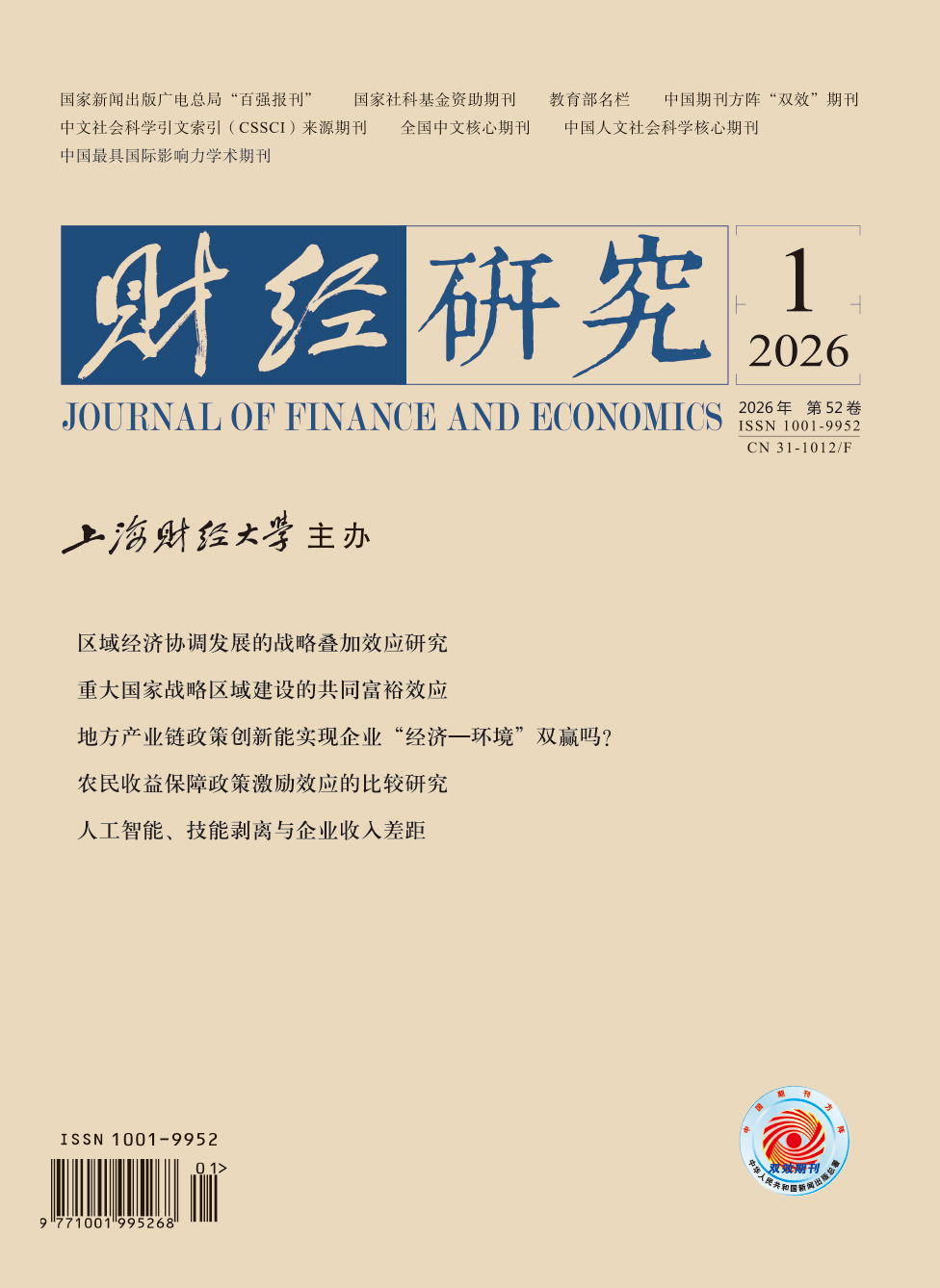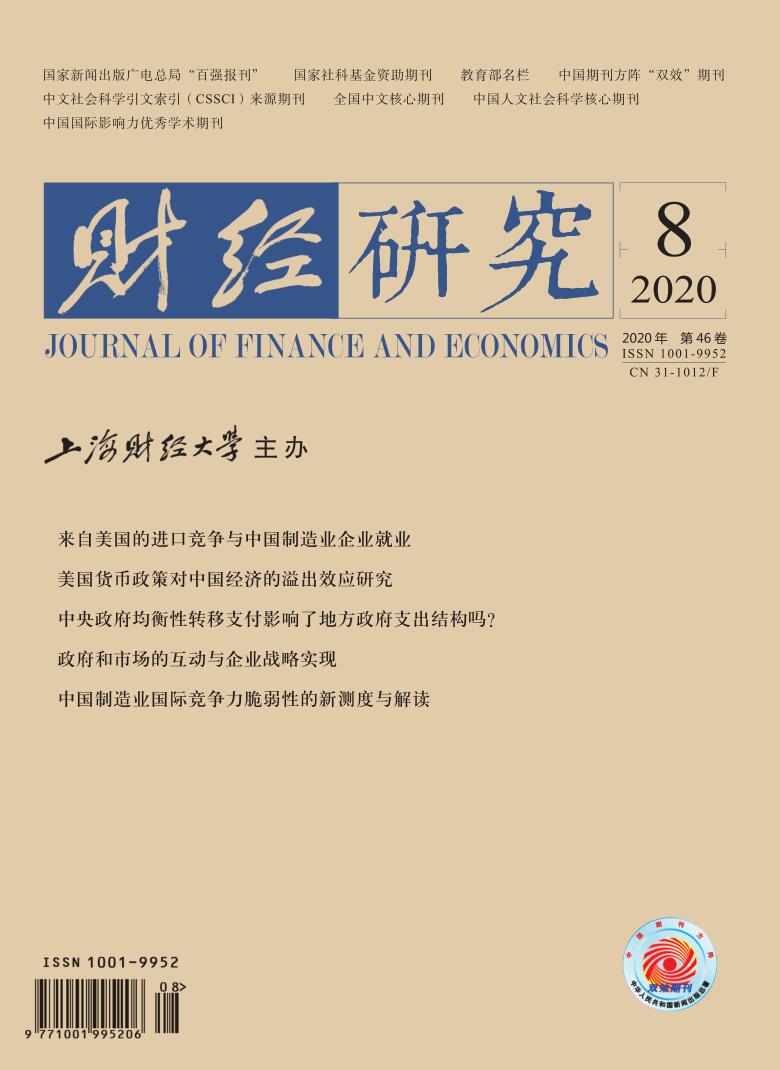近年来,“超前消费”“过度消费”的理念和政府良好的信贷政策助推了我国居民的负债性消费行为,家庭负债也迅速增加。作为平滑跨期消费的重要手段,负债会通过改善家庭的外在消费模式,对个体的消费相对剥夺产生影响。而所谓消费相对剥夺是指将个体和参照群中消费水平更高的其他个体进行比较,所得到的相对消费地位或消费状况,可直接反映居民间真实的福利差异。但是,由于在借贷规模、还款期限和消费指向性等方面存在显著差异,住房负债与非住房负债对消费相对剥夺可能具有不同的影响。文章利用中国家庭追踪调查(CFPS)数据对此展开相关探讨。首先,实证结果显示,负债家庭的消费相对剥夺显著低于无负债家庭,这表明负债可在一定程度上缓解消费相对剥夺。其次,对负债家庭而言,负债规模和消费相对剥夺之间具有U形的非线性相关关系。再次,细分负债类别后发现,住房负债规模与非住房负债规模对消费相对剥夺的影响是相反的,前者起到加剧作用,后者则具有缓解效应。但是,当非住房负债规模达到一定程度后,又会加剧消费相对剥夺。而影响程度也与家庭特征和地区特征有关。最后,进一步研究表明,这两种负债对消费相对剥夺存在一定的调节效应,并且这种调节效应对于发展和享受型消费品的相对剥夺更为有效。基于以上研究结论,文章就进一步平衡“促消费”与“防风险”的关系、降低消费相对剥夺、减缓相对贫困和增进民生福祉提出了政策思路。
家庭负债与消费相对剥夺——基于住房负债与非住房负债的视角
摘要
参考文献
18 Agnello L,Sousa R M. How do banking crises impact on income inequality?[J]. Applied Economics Letters,2012,19(15): 1425−1429. DOI:10.1080/13504851.2011.631885
20 Brown C. Does income distribution matter for effective demand?Evidence from the United States[J]. Review of Political Economy,2004,16(3): 291−307. DOI:10.1080/0953825042000225607
21 Easterlin R A. Does economic growth improve the human lot? Some empirical evidence[A]. David P A, Reder M W. Nations and households in economic growth: Essays in honor of Moses Abramovitz[M]. New York, NY: Academic Press, 1974.
22 Eriksson T,Pan J,Qin X Z. The intergenerational inequality of health in China[J]. China Economic Review,2014,31: 392−409. DOI:10.1016/j.chieco.2014.06.005
23 Fehr E,Schmidt K M. A theory of fairness,competition and cooperation[J]. The Quarterly Journal of Economics,1999,114(3): 817−868. DOI:10.1162/003355399556151
24 Guerrieri V,Lorenzoni G. Credit crises,precautionary savings and the liquidity trap[J]. The Quarterly Journal of Economics,2017,132(3): 1427−1467. DOI:10.1093/qje/qjx005
25 Hastings O P. Who feels it?Income inequality,relative deprivation and financial satisfaction in U.S. States,1973-2012[J]. Research in Social Stratification and Mobility,2019,60: 1−15. DOI:10.1016/j.rssm.2019.01.004
26 Jacob I,Khanna M,Rai K A. Attribution analysis of luxury brands:An investigation into Consumer-brand congruence through conspicuous consumption[J]. Journal of Business Research,2020,116: 597−607. DOI:10.1016/j.jbusres.2019.07.007
27 Jappelli T,Pistaferri L. The consumption response to income changes[J]. Annual Review of Economics,2010,2: 479−506. DOI:10.1146/annurev.economics.050708.142933
30 Kumhof M,Rancière R,Winant P. Inequality,leverage and crises[J]. American Economic Review,2015,105(3): 1217−1245. DOI:10.1257/aer.20110683
32 Pardo G P,Santos J M S. Household debt and consumption inequality:The Spanish case[J]. Economies,2014,2(3): 147−170. DOI:10.3390/economies2030147
33 Runciman W G. Relative deprivation and social justice: A study of attitudes to social inequality in twentieth-century England[M]. Berkeley: University of California Press, 1966.
35 Walker I, Smith H J. Relative deprivation: Specification, development and integration[M]. New York: Cambridge University Press, 2002.
36 Yang X Y,Hu A N,Schieman S. Relative deprivation in context:How contextual status homogeneity shapes the relationship between disadvantaged social status and health[J]. Social Science Research,2019,81: 157−169. DOI:10.1016/j.ssresearch.2019.03.011
引用本文
张雅淋, 姚玲珍. 家庭负债与消费相对剥夺——基于住房负债与非住房负债的视角[J]. 财经研究, 2020, 46(8): 64-79.
导出参考文献,格式为:
下一篇:进口贴息政策的创新效应研究






 7532
7532  9679
9679

